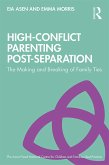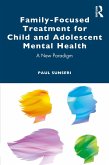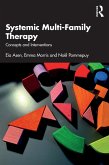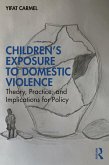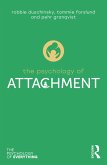Joyce Scaife
Deciding Children's Futures (eBook, PDF)
An Expert Guide to Assessments for Safeguarding and Promoting Children's Welfare in the Family Court
35,95 €
35,95 €
inkl. MwSt.
Sofort per Download lieferbar

18 °P sammeln
35,95 €
Als Download kaufen

35,95 €
inkl. MwSt.
Sofort per Download lieferbar

18 °P sammeln
Jetzt verschenken
Alle Infos zum eBook verschenken
35,95 €
inkl. MwSt.
Sofort per Download lieferbar
Alle Infos zum eBook verschenken

18 °P sammeln
Joyce Scaife
Deciding Children's Futures (eBook, PDF)
An Expert Guide to Assessments for Safeguarding and Promoting Children's Welfare in the Family Court
- Format: PDF
- Merkliste
- Auf die Merkliste
- Bewerten Bewerten
- Teilen
- Produkt teilen
- Produkterinnerung
- Produkterinnerung

Bitte loggen Sie sich zunächst in Ihr Kundenkonto ein oder registrieren Sie sich bei
bücher.de, um das eBook-Abo tolino select nutzen zu können.
Hier können Sie sich einloggen
Hier können Sie sich einloggen
Sie sind bereits eingeloggt. Klicken Sie auf 2. tolino select Abo, um fortzufahren.

Bitte loggen Sie sich zunächst in Ihr Kundenkonto ein oder registrieren Sie sich bei bücher.de, um das eBook-Abo tolino select nutzen zu können.
The second edition of Deciding Children's Futures addresses the thorny task of assessing parents and children who belong to struggling families where there are issues of neglect or significant harm, and when separating parents are contesting arrangements for the care of their children in family court.
- Geräte: PC
- mit Kopierschutz
- eBook Hilfe
Andere Kunden interessierten sich auch für
![Deciding Children's Futures (eBook, ePUB) Deciding Children's Futures (eBook, ePUB)]() Joyce ScaifeDeciding Children's Futures (eBook, ePUB)35,95 €
Joyce ScaifeDeciding Children's Futures (eBook, ePUB)35,95 €![High-Conflict Parenting Post-Separation (eBook, PDF) High-Conflict Parenting Post-Separation (eBook, PDF)]() Eia AsenHigh-Conflict Parenting Post-Separation (eBook, PDF)24,95 €
Eia AsenHigh-Conflict Parenting Post-Separation (eBook, PDF)24,95 €![Family-Focused Treatment for Child and Adolescent Mental Health (eBook, PDF) Family-Focused Treatment for Child and Adolescent Mental Health (eBook, PDF)]() Paul SunseriFamily-Focused Treatment for Child and Adolescent Mental Health (eBook, PDF)32,95 €
Paul SunseriFamily-Focused Treatment for Child and Adolescent Mental Health (eBook, PDF)32,95 €![Systemic Multi-Family Therapy (eBook, PDF) Systemic Multi-Family Therapy (eBook, PDF)]() Eia AsenSystemic Multi-Family Therapy (eBook, PDF)26,95 €
Eia AsenSystemic Multi-Family Therapy (eBook, PDF)26,95 €![Trauma in Children and Young People (eBook, PDF) Trauma in Children and Young People (eBook, PDF)]() Christine BradleyTrauma in Children and Young People (eBook, PDF)27,95 €
Christine BradleyTrauma in Children and Young People (eBook, PDF)27,95 €![Children's Exposure to Domestic Violence (eBook, PDF) Children's Exposure to Domestic Violence (eBook, PDF)]() Yifat CarmelChildren's Exposure to Domestic Violence (eBook, PDF)32,95 €
Yifat CarmelChildren's Exposure to Domestic Violence (eBook, PDF)32,95 €![The Psychology of Attachment (eBook, PDF) The Psychology of Attachment (eBook, PDF)]() Robbie DuschinskyThe Psychology of Attachment (eBook, PDF)14,95 €
Robbie DuschinskyThe Psychology of Attachment (eBook, PDF)14,95 €-
-
-
The second edition of Deciding Children's Futures addresses the thorny task of assessing parents and children who belong to struggling families where there are issues of neglect or significant harm, and when separating parents are contesting arrangements for the care of their children in family court.
Hinweis: Dieser Artikel kann nur an eine deutsche Lieferadresse ausgeliefert werden.
Dieser Download kann aus rechtlichen Gründen nur mit Rechnungsadresse in A, B, BG, CY, CZ, D, DK, EW, E, FIN, F, GR, HR, H, IRL, I, LT, L, LR, M, NL, PL, P, R, S, SLO, SK ausgeliefert werden.
Hinweis: Dieser Artikel kann nur an eine deutsche Lieferadresse ausgeliefert werden.
Produktdetails
- Produktdetails
- Verlag: Taylor & Francis eBooks
- Seitenzahl: 426
- Erscheinungstermin: 19. Juli 2024
- Englisch
- ISBN-13: 9781040038918
- Artikelnr.: 70717926
- Verlag: Taylor & Francis eBooks
- Seitenzahl: 426
- Erscheinungstermin: 19. Juli 2024
- Englisch
- ISBN-13: 9781040038918
- Artikelnr.: 70717926
- Herstellerkennzeichnung Die Herstellerinformationen sind derzeit nicht verfügbar.
Joyce Scaife is a clinical psychologist with over 25 years of experience as an expert witness carrying out assessments for the family court. She is former Director of Clinical Practice for the Clinical Psychology Unit at the University of Sheffield.
Preface. Acknowledgements. Introduction. Being Assessed. Feelings
Associated with Assessment. Confidence and Trust. Relationship, Alliance
and Temptation to 'Rescue'. Confidentiality. A Focus on Strengths. Art or
Science, Analytical or Intuitive Judgement, Quantitative or Qualitative
Methods? Fairness. Overall Process of Assessment. What can go Wrong and How
to Avoid it. Skills. Interviewing. Issues in interviewing. Purpose of
Interviews. The Role of Checklists and Formal Structures for Interviewing.
Reflecting Purpose in the Start of the Interview. The Continuing Interview.
Characteristics of Respondents. Bearing in Mind that we are More Similar
than Different and our Lives Could Have Followed a Similar Path.
Assessment of Personality, Profile and Relationship Context. Personality
Traits and Psychological Profile. Characteristics and Issues that Impact on
Parenting Skills. Aspects of Profiles Relevant to Family Proceedings.
Assessing Motivation to Change. Assessment of Social Support. Assessment of
Couple Relationships. Domestic Violence. Special Issues in the Assessment
of Adults. Mental health difficulties. Drug or alcohol misuse. Physical
Impairment. Learning Difficulties. Assessment of Parenting. Precautions.
What Matters in Parenting? Sources of Evidence. A Framework for the
Assessment of Care-giving. Formal Assessment Measures of Parenting.
Prioritising Data in Assessments of Care-giving. Interventions and Sources
of Support. Assessment of Children and Young People. Introduction.
Legislation and the Voice of the Child. Making Sense of Behavioural
Indicators. Interviewing Children. Structured Approaches to the Assessment
of Children. Assessment of Attachment. Attachment and learning theories.
Piaget's Theory of Learning. The Impact of Infant Temperament. Parental
Factors Affecting the Development of Attachment and Categorisations of
Attachment Style. Adult Attachments. Attachment Disorder Critiques of
Attachment Theory. Attachment in Practice - Relevance to Safeguarding.
Assessment of Attachment. Attachment and Contact with Birth Family.
Assessment of Care-giver Sensitivity Implications of Attachment Theory for
Placement. Continuity of Attachment. Risk, Safety, ProtectiveFactors and
Needs Assessment. Rationale for Conducting Assessments of Risk, Safety,
Protective Factors and Needs. Breaking Bad News. Assessments of Safety. The
Epidemiology of Child Abuse and Neglect. Actuarial and Consensual Risk
Assessment Tools. Decision Tree Methods - HCR-20. Aims of Risk Assessment.
Approaches to Assessing Strengths, Needs and Protective Factors. Structured
Decision Making. Placement, Residence and Contact Arrangements. Issues in
deciding placement. Types of Alternative Placement and Factors Related to
Outcomes. The Decision to Place Siblings Together or Apart. Contact with
Birth Families. Private Law. Theoretical Considerations, Data Synthesis and
Formulation. The Meaning of Information. Theoretical Considerations.
Organisation of Material. Strategies for Data Analysis and Synthesis. The
Family's Understanding and Explanations.Case formulation. In conclusion.
Postscript. References. Glossary. Appendices.
Associated with Assessment. Confidence and Trust. Relationship, Alliance
and Temptation to 'Rescue'. Confidentiality. A Focus on Strengths. Art or
Science, Analytical or Intuitive Judgement, Quantitative or Qualitative
Methods? Fairness. Overall Process of Assessment. What can go Wrong and How
to Avoid it. Skills. Interviewing. Issues in interviewing. Purpose of
Interviews. The Role of Checklists and Formal Structures for Interviewing.
Reflecting Purpose in the Start of the Interview. The Continuing Interview.
Characteristics of Respondents. Bearing in Mind that we are More Similar
than Different and our Lives Could Have Followed a Similar Path.
Assessment of Personality, Profile and Relationship Context. Personality
Traits and Psychological Profile. Characteristics and Issues that Impact on
Parenting Skills. Aspects of Profiles Relevant to Family Proceedings.
Assessing Motivation to Change. Assessment of Social Support. Assessment of
Couple Relationships. Domestic Violence. Special Issues in the Assessment
of Adults. Mental health difficulties. Drug or alcohol misuse. Physical
Impairment. Learning Difficulties. Assessment of Parenting. Precautions.
What Matters in Parenting? Sources of Evidence. A Framework for the
Assessment of Care-giving. Formal Assessment Measures of Parenting.
Prioritising Data in Assessments of Care-giving. Interventions and Sources
of Support. Assessment of Children and Young People. Introduction.
Legislation and the Voice of the Child. Making Sense of Behavioural
Indicators. Interviewing Children. Structured Approaches to the Assessment
of Children. Assessment of Attachment. Attachment and learning theories.
Piaget's Theory of Learning. The Impact of Infant Temperament. Parental
Factors Affecting the Development of Attachment and Categorisations of
Attachment Style. Adult Attachments. Attachment Disorder Critiques of
Attachment Theory. Attachment in Practice - Relevance to Safeguarding.
Assessment of Attachment. Attachment and Contact with Birth Family.
Assessment of Care-giver Sensitivity Implications of Attachment Theory for
Placement. Continuity of Attachment. Risk, Safety, ProtectiveFactors and
Needs Assessment. Rationale for Conducting Assessments of Risk, Safety,
Protective Factors and Needs. Breaking Bad News. Assessments of Safety. The
Epidemiology of Child Abuse and Neglect. Actuarial and Consensual Risk
Assessment Tools. Decision Tree Methods - HCR-20. Aims of Risk Assessment.
Approaches to Assessing Strengths, Needs and Protective Factors. Structured
Decision Making. Placement, Residence and Contact Arrangements. Issues in
deciding placement. Types of Alternative Placement and Factors Related to
Outcomes. The Decision to Place Siblings Together or Apart. Contact with
Birth Families. Private Law. Theoretical Considerations, Data Synthesis and
Formulation. The Meaning of Information. Theoretical Considerations.
Organisation of Material. Strategies for Data Analysis and Synthesis. The
Family's Understanding and Explanations.Case formulation. In conclusion.
Postscript. References. Glossary. Appendices.
1. Introduction 2. Interviewing 3. Assessment of Personality, Profile and Relationship Context 4. Special Issues in the Assessment of Adults 5. Assessment of Parenting 6. Assessment of Children and Young People 7. Assessing Attachment 8. Risk, Safety, Protective Factors and Needs Assessment 9. Placement and Child Arrangements 10. Theoretical Considerations, Data Synthesis and Re-Formulation
Preface. Acknowledgements. Introduction. Being Assessed. Feelings
Associated with Assessment. Confidence and Trust. Relationship, Alliance
and Temptation to 'Rescue'. Confidentiality. A Focus on Strengths. Art or
Science, Analytical or Intuitive Judgement, Quantitative or Qualitative
Methods? Fairness. Overall Process of Assessment. What can go Wrong and How
to Avoid it. Skills. Interviewing. Issues in interviewing. Purpose of
Interviews. The Role of Checklists and Formal Structures for Interviewing.
Reflecting Purpose in the Start of the Interview. The Continuing Interview.
Characteristics of Respondents. Bearing in Mind that we are More Similar
than Different and our Lives Could Have Followed a Similar Path.
Assessment of Personality, Profile and Relationship Context. Personality
Traits and Psychological Profile. Characteristics and Issues that Impact on
Parenting Skills. Aspects of Profiles Relevant to Family Proceedings.
Assessing Motivation to Change. Assessment of Social Support. Assessment of
Couple Relationships. Domestic Violence. Special Issues in the Assessment
of Adults. Mental health difficulties. Drug or alcohol misuse. Physical
Impairment. Learning Difficulties. Assessment of Parenting. Precautions.
What Matters in Parenting? Sources of Evidence. A Framework for the
Assessment of Care-giving. Formal Assessment Measures of Parenting.
Prioritising Data in Assessments of Care-giving. Interventions and Sources
of Support. Assessment of Children and Young People. Introduction.
Legislation and the Voice of the Child. Making Sense of Behavioural
Indicators. Interviewing Children. Structured Approaches to the Assessment
of Children. Assessment of Attachment. Attachment and learning theories.
Piaget's Theory of Learning. The Impact of Infant Temperament. Parental
Factors Affecting the Development of Attachment and Categorisations of
Attachment Style. Adult Attachments. Attachment Disorder Critiques of
Attachment Theory. Attachment in Practice - Relevance to Safeguarding.
Assessment of Attachment. Attachment and Contact with Birth Family.
Assessment of Care-giver Sensitivity Implications of Attachment Theory for
Placement. Continuity of Attachment. Risk, Safety, ProtectiveFactors and
Needs Assessment. Rationale for Conducting Assessments of Risk, Safety,
Protective Factors and Needs. Breaking Bad News. Assessments of Safety. The
Epidemiology of Child Abuse and Neglect. Actuarial and Consensual Risk
Assessment Tools. Decision Tree Methods - HCR-20. Aims of Risk Assessment.
Approaches to Assessing Strengths, Needs and Protective Factors. Structured
Decision Making. Placement, Residence and Contact Arrangements. Issues in
deciding placement. Types of Alternative Placement and Factors Related to
Outcomes. The Decision to Place Siblings Together or Apart. Contact with
Birth Families. Private Law. Theoretical Considerations, Data Synthesis and
Formulation. The Meaning of Information. Theoretical Considerations.
Organisation of Material. Strategies for Data Analysis and Synthesis. The
Family's Understanding and Explanations.Case formulation. In conclusion.
Postscript. References. Glossary. Appendices.
Associated with Assessment. Confidence and Trust. Relationship, Alliance
and Temptation to 'Rescue'. Confidentiality. A Focus on Strengths. Art or
Science, Analytical or Intuitive Judgement, Quantitative or Qualitative
Methods? Fairness. Overall Process of Assessment. What can go Wrong and How
to Avoid it. Skills. Interviewing. Issues in interviewing. Purpose of
Interviews. The Role of Checklists and Formal Structures for Interviewing.
Reflecting Purpose in the Start of the Interview. The Continuing Interview.
Characteristics of Respondents. Bearing in Mind that we are More Similar
than Different and our Lives Could Have Followed a Similar Path.
Assessment of Personality, Profile and Relationship Context. Personality
Traits and Psychological Profile. Characteristics and Issues that Impact on
Parenting Skills. Aspects of Profiles Relevant to Family Proceedings.
Assessing Motivation to Change. Assessment of Social Support. Assessment of
Couple Relationships. Domestic Violence. Special Issues in the Assessment
of Adults. Mental health difficulties. Drug or alcohol misuse. Physical
Impairment. Learning Difficulties. Assessment of Parenting. Precautions.
What Matters in Parenting? Sources of Evidence. A Framework for the
Assessment of Care-giving. Formal Assessment Measures of Parenting.
Prioritising Data in Assessments of Care-giving. Interventions and Sources
of Support. Assessment of Children and Young People. Introduction.
Legislation and the Voice of the Child. Making Sense of Behavioural
Indicators. Interviewing Children. Structured Approaches to the Assessment
of Children. Assessment of Attachment. Attachment and learning theories.
Piaget's Theory of Learning. The Impact of Infant Temperament. Parental
Factors Affecting the Development of Attachment and Categorisations of
Attachment Style. Adult Attachments. Attachment Disorder Critiques of
Attachment Theory. Attachment in Practice - Relevance to Safeguarding.
Assessment of Attachment. Attachment and Contact with Birth Family.
Assessment of Care-giver Sensitivity Implications of Attachment Theory for
Placement. Continuity of Attachment. Risk, Safety, ProtectiveFactors and
Needs Assessment. Rationale for Conducting Assessments of Risk, Safety,
Protective Factors and Needs. Breaking Bad News. Assessments of Safety. The
Epidemiology of Child Abuse and Neglect. Actuarial and Consensual Risk
Assessment Tools. Decision Tree Methods - HCR-20. Aims of Risk Assessment.
Approaches to Assessing Strengths, Needs and Protective Factors. Structured
Decision Making. Placement, Residence and Contact Arrangements. Issues in
deciding placement. Types of Alternative Placement and Factors Related to
Outcomes. The Decision to Place Siblings Together or Apart. Contact with
Birth Families. Private Law. Theoretical Considerations, Data Synthesis and
Formulation. The Meaning of Information. Theoretical Considerations.
Organisation of Material. Strategies for Data Analysis and Synthesis. The
Family's Understanding and Explanations.Case formulation. In conclusion.
Postscript. References. Glossary. Appendices.
1. Introduction 2. Interviewing 3. Assessment of Personality, Profile and Relationship Context 4. Special Issues in the Assessment of Adults 5. Assessment of Parenting 6. Assessment of Children and Young People 7. Assessing Attachment 8. Risk, Safety, Protective Factors and Needs Assessment 9. Placement and Child Arrangements 10. Theoretical Considerations, Data Synthesis and Re-Formulation


